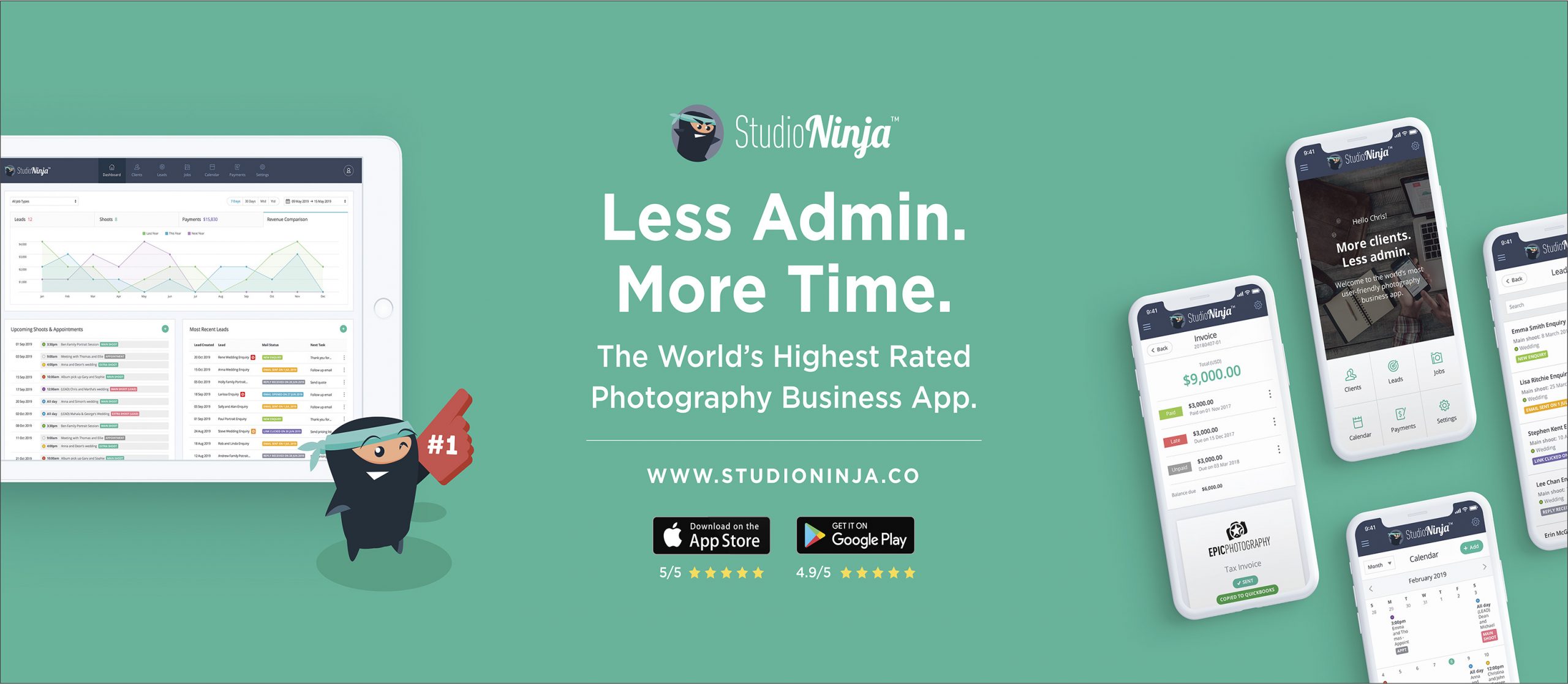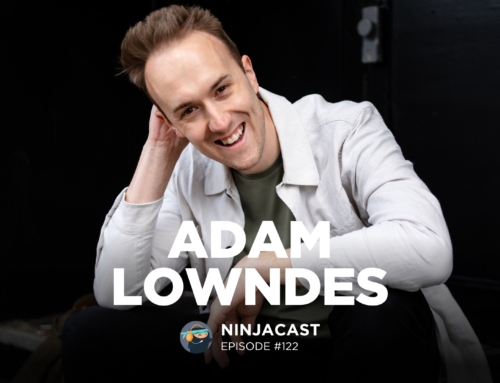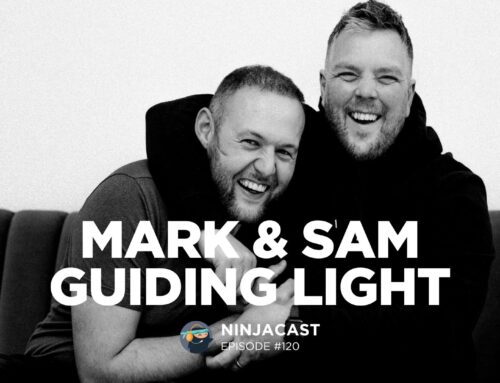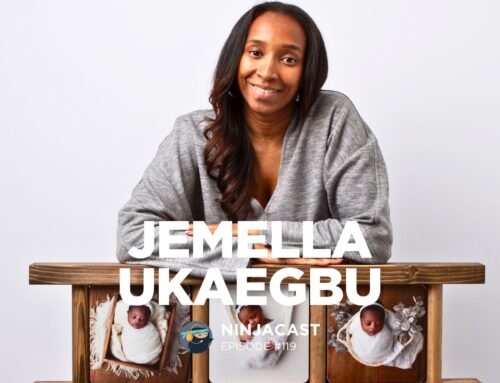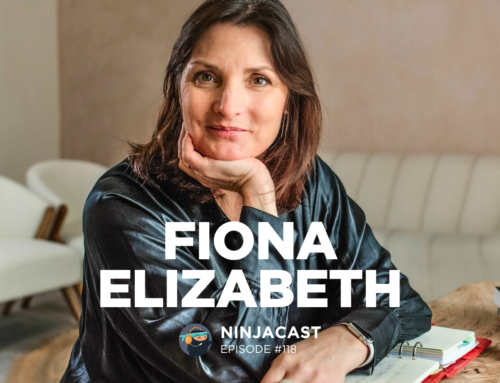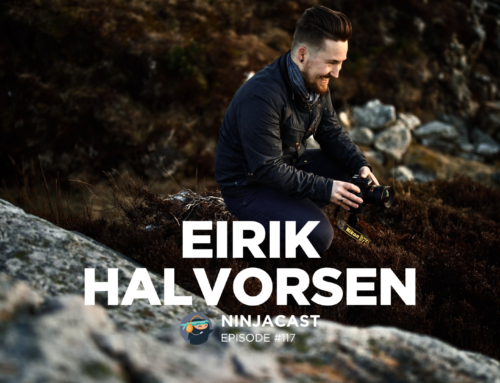057: Sarah Winterflood – Discover A Woman’s Superpower & Step Into A Growth Mindset Confidently
March 30, 2022
“Stand tall. We’re all unique. There is certainly enough space in this world for everybody to shine bright. “
SARAH WINTERFLOOD
Hey everyone! It’s Sally here, from Studio Ninja. Today’s episode is all about Sarah Winterflood.
Sarah Winterflood is a female photographer and empowerment coach who helps women break down their fears and embrace being visible, which in turn allows them to shine bright as their authentic selves.
Before her photography business Sarah was an actor, working the London Fringe scene for five years. With a change in creative direction Sarah has been a freelance photographer for the past fifteen plus years, working with many businesses and individuals. Sarah now combines her performance knowledge and mindset empowerment coaching with her photography to empower women to feel confident in front of, and behind, the lens.
Check out some of the biggest points from Sarah’s interview below:
How do you adopt a growth mindset?
Life isn’t static or linear – it doesn’t work like that. We have to keep growing, surely, that’s what we are as humans. It doesn’t stop when you leave school. And so with your photography business that it’s ever changing, technology is ever changing. There’s new apps, there’s all sorts of things. So we’re always constantly learning.
But I think we forget that we are growing in ourselves, as well. So we’re having all of this stuff put upon us that we’ve got to learn, but that doesn’t mean that we are not learning or changing the way that we view things. So a fixed mindset, the things that show up where you may well be in a sort of fixed mindset is things like you could give up quite easily. You feel defensive, if you get constructive criticism. You don’t want to be collaborative. You don’t want to embrace new things that might be suggested. Making the effort seems like “What’s the point?” So it’s generally in the negative.
And so to go into the growth mindset, if we start to think about why, a really good thing actually is just language that we say to ourselves and how we talk about ourselves. If we flip it from the negative to the positive, like a lot of photographers are afraid of using flash. And so often they might go, “I’m just rubbish at using flash.”
And that’s already, you’ve limited yourself just by using that language. But if you flip it and say, “Well, I don’t feel confident using flash.” Then you are open to learning and you can say, “But I can find out and I can test and I can play around with it.”
So I think it’s opening our mind. So the growth mindset is just having an open mindset. And trying different things out. So for me, what don’t I feel comfortable doing? I have to say weddings is not my thing. It’s just not where I feel 100% comfortable, but I have done some small weddings, but I would still be willing to try it out and I’ve done it.

How can they embrace their own power and push forward with their own business without comparing themselves to others?
Well, don’t they say comparison is the thief of joy.
The first thing to do is, perhaps, try and resist comparing. It’s hard to do it because it can become a habit and it’s a sort of default setting that we can get into. So a good way is to stop following people that you feel you are not worthy of achieving this same success as them. And you could give yourself a little detox to say, “Okay, I’m not going to get involved or I’m not going to go and view what those people that I put on a pedestal are doing because it just makes me feel rubbish.” So we’ve got to think about ourselves and self care, even though that feels like quite a sort of bandied, around term now it’s really important. So we’ve got to look to ourselves and we’ve got to be kind to ourselves, because anyone can do it, so it’s self belief.
And one thing that’s really important with imposter syndrome is it gets loud and it can take over everything. And so what we need to do is try and get it really quiet and then pop it in a box and it doesn’t need to come out anymore. And it’s almost like negative thoughts is the thing that feeds that imposter syndrome.
So like I’ve talked about before, it’s negative language. If we can be mindful of the way that we talk about ourselves and also talk about others, if we are mindful of that, let’s change it. If it’s negative, change it to the positive. It’s a really simple thing to do, but it really helps. And then self-care is really key and a good way to start that is by writing out a gratitude list. It may not be everybody’s cup of tea, but it really is quite effective and powerful. And there’s loads of apps out there that you can use. Or you could just have a nice excuse to go and buy a nice new notebook.
I love an excuse to do that. Gratitude is the key to it all, really. When we can start being grateful for things, then we can start to see the world in a positive light. Or at home where we are and it’s small changes, as well.And so for example, if I was to write, be grateful about something right now, if there was three things, I’d be grateful for this opportunity to talk to you. I’m great grateful that my Wi-Fi at the moment is still working. And I’m grateful that it’s sunny today and it’s not raining, because that makes me happy. So already, what that does is that changes my state and I feel a bit more happy. I feel more empowered and I feel more able to look outward as opposed to inward.
And my coach always says that gratitude is the game changer and it is very true. And it doesn’t have to be anything crazy. Literally just three things that you could think of that you’re grateful for. And often when I talk to people about that, they’re like, “I don’t know where to start,” because we think too big.
So let bring it small, make it small. It could be your cup of tea in the morning. It could be a cuddle from your nearest and dearest. Really small things, smelling the flowers, the scent from a flower.

What is the female super power?
Okay. So the female superpower is the female cycle and it’s powerful. And I didn’t know this until I attended a master class that was all about the female cycle because the female cycle was something that we don’t talk about. It’s still pretty taboo. I mean, it’s getting a lot easier to talk about it, but it’s definitely something that’s been hidden and that we don’t really discuss it. And it’s not a positive.
But since I went on a master class, I’m just all about it. I love it. I’m like “How have I only just learned when I’m probably coming towards the end of it with my age?” And I’m a bit annoyed, to be honest. If we can embrace this, then we are really empowered. The female cycle is awesome.
So, what I’ve done is, when I went on this master class, I, then, was like, “I need to learn more about it.” So I just read books about it and I’ve absorbed as much as I can. And essentially what’s happened is that we women, we run on a 28, 29 day cycle, but what we run on in society is a 24 hour cycle. And that is coming from a sort of male gen… Like the patriarchy and that’s where it’s coming from, the 24 hour cycle. And what’s interesting is that if we can harness how our bodies work, we’re then really empowered to be able to know when we can find the pivotal times to do the work that we need to do. So for instance, and even if you don’t have a female cycle, we can use the lunar cycle to coincide with that, as well.
So it is available to all. And there’s a term called bio hacking. So if you start to become mindful of how you are, as the lunar cycle is working, or how your cycle is going, if you can jot down how you’re feeling, maybe your moods. You can get really into it and you can take your temperature every morning and you can start to collect data and see how your body is reacting and how it’s changing with hormones that fluctuate and things like that.
And as you get through your cycle and you sort of see maybe after three or four months, there will be specific times when you feel really on it. And you’re like, “Boom, I am super creative right now. Just give it all to me because I’m feeling like I want to do it all now.” And then, a week later, you might just be like, “Give men the whole of the cupboard of chocolate. I don’t want to speak to anybody. And I’m just really grumpy. Just go away.”
That’s all part of your cycle. All of it. It’s not just the time when you’re just feeling really horrible, crampy and you just eat chocolate and everything’s emotional. We need to harness it all. And we need to know that that’s really powerful stuff. So it’s called bio hacking.
And if you can start to listen to your body, there is certain times, in your cycle, in the month where you will feel really creative. There will be times when you want to collaborate and work with other people. There’ll also be times when you don’t want to work with anybody and you’re not feeling creative and you just want some down time. And so then you can start to figure out “How can I work within the cycle?”.

Thank you!
Thanks again to you all for joining us and a huge thanks to Sarah for joining us on the show!
If you have any suggestions, comments or questions about this episode, please be sure to leave them below in the comment section of this post, and if you liked the episode, please share it using the social media buttons you see at the bottom of the post!
That’s it for me this week, I hope you all enjoyed this episode.
See you soon,
Sally

About Sarah Winterflood
Sarah Winterflood is a female photographer and empowerment coach who helps women break down their fears and embrace being visible, which in turn allows them to shine bright as their authentic selves. Before her photography business Sarah was an actor, working the London Fringe scene for five years. With a change in creative direction Sarah has been a freelance photographer for the past fifteen plus years, working with many businesses and individuals. Sarah now combines her performance knowledge and mindset empowerment coaching with her photography to empower women to feel confident in front of, and behind, the lens.
